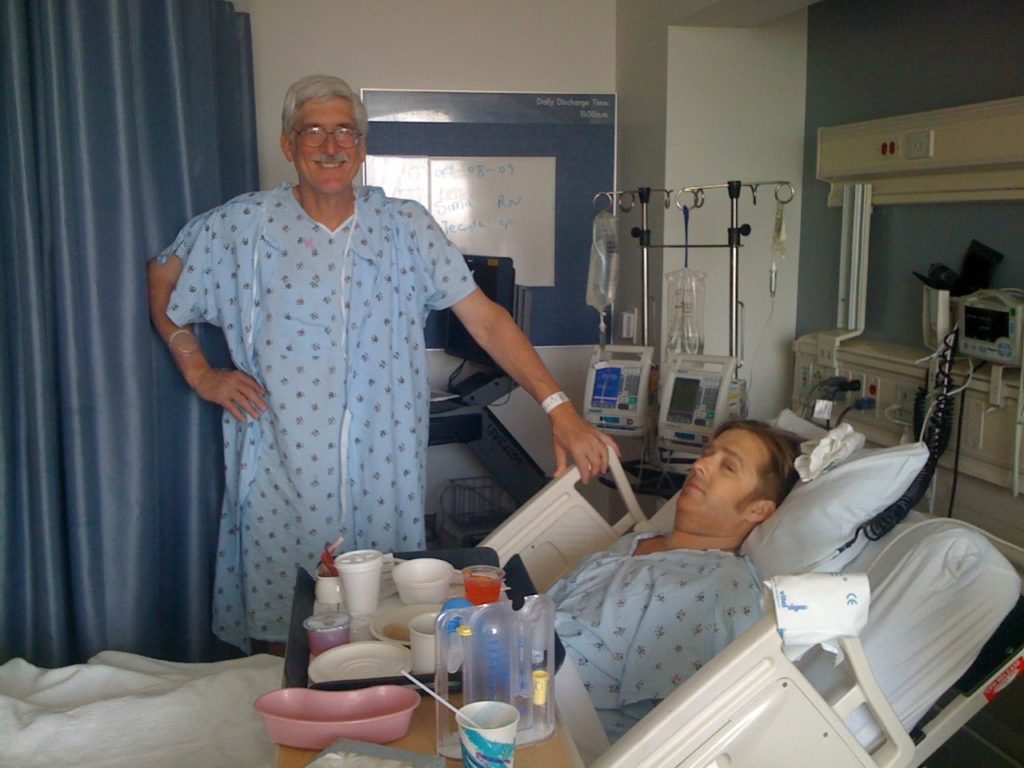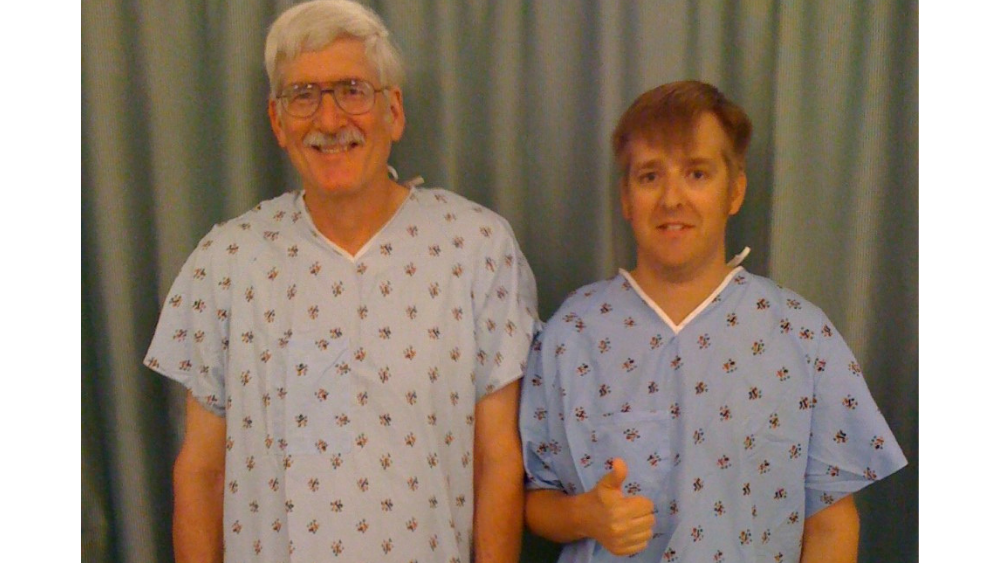In the first part of the story of his kidney transplant, writer Nathan Collins described how he had been sick with a kidney infection when he was 13 and how he had been fine almost a decade after.
The first signs more lasting damage had been done came from a physical my senior year of college at the University of Washington. My blood pressure turned out to be around 130 over 90 or so, which isn't terrible and could be attributed to white-coat syndrome -- basically, getting anxious around doctors.
Certainly I was anxious around doctors and other medical professionals. Around the time I was sick, I spent a lot of time with them poking and prodding me. Although it's morphed into unusually strong preferences over who draws my blood and the techniques they use to do it, my fear of needles lasts to this day. So, everyone thought, one high reading on the sphygmomanometer was no big deal.
But then I had to have a physical when I started graduate school at the Massachusetts Institute of Technology, and my blood pressure was higher -- this time, 150 over 120. I spent an autumn Cambridge, Massachusetts night in the hospital and began a series of tests and consultations that led me finally to the office of Hasan Bazari, MD, a nephrologist at Harvard Medical School and Massachusetts General Hospital who diagnosed me with IgA nephropathy. (If memory serves -- the records have been hard to dig up.) IgA nephropathy is an autoimmune condition, and it was slowly killing my kidneys, which among other things help regulate blood pressure.
I went on a series of blood pressure medications, but something was immediately clear. Not right away, but someday in the not too distant future, my kidneys were going to fail completely and I would need a transplant.
The first thing my brother Marcus -- who, by the way, is my identical twin -- said was that I could have his kidney. I won't ever forget that call and how much it meant to me. I don't think anyone else really thought that much about donating, because the assumption was I would have a healthy donor who could provide a perfect match, one that my own body might not recognize as foreign.
The next nine years went by and plenty of other things happened, but I slowly got sicker and sicker. I turned slightly yellow, my breath smelled worse, I gained some weight, and I got very, very tired. Napping-on-the-couch-at-work-because-I-couldn't-keep-my-eyes-open tired. By summer 2009, it was time to find a donor.
We settled on the University of California, Los Angeles for the transplant -- although I was living in New Mexico for a postdoctoral fellowship at the Santa Fe Institute, my wife Theresa was an attorney in Los Angeles -- and Marcus got to work getting all the various tests and screenings you have to get to give someone a kidney. Everything was going to be fine, and then, while Marcus was over at the hospital in Westwood, Los Angeles for final tests and consultations, my twin called.
I was in LA and walked over to the hospital, and he hugged me. He couldn't give me a kidney after all. He was fine, perfectly healthy, but one of his kidneys was too small. That kidney wouldn't be enough to keep me healthy, and obviously he needed the other one. He was more upset than me. He had actually joked to his wife that the radiologist was going to come back and say he didn't have two kidneys. When that radiologist came back and told him couldn't donate, he insisted on seeing the CT images himself.
Of course it posed a problem for me. Everyone had assumed this would be how it would go, that Marcus would give me a kidney, and now that it wasn't going to work out, I would need to find a new donor.
My dad signed up that day and began testing soon after. Others pledged to help, but my dad was determined to be the donor, in part because he knew my chances of a successful transplant -- one that lasted not just the first few days but for years after -- would be greatly improved by having a closer biological match.
It was not certain it would work out.

My dad tested positive for a cardiac issue -- one that about a third of men get false positives for, a doctor later explained to him -- so he went through a more involved nuclear medicine test to see if his heart was up to a surgery that would remove one of his organs. A blood test to check sugar levels suggested he was on the cusp of developing diabetes -- there had been an unfortunately timed slice of chocolate pecan pie -- so he underwent follow-up tests to see whether his body was processing sugar properly. (He asked me to thank Tonya Frazier, RN, a transplant coordinator for UCLA, for helping guide him through all of that testing.)
He passed all those follow-up tests, and if he hadn't, he would have persisted anyway. As soon as he understood my brother couldn't give me a kidney, he decided he was going to do it. Actually, "decided" doesn't seem like the right word. Like Marcus's offer years before, it was just what he was going to do. It required no thought. I think it was a reflex.
On October 7, 2009, surgeons cut my father's left kidney free and removed it through a small hole in his side, then cut me wide open and sewed his kidney into my right side. I've had a few surgeries and this was the only one I woke up from feeling better than when I went in. The thing I remember most clearly, apart from seeing my wife there, was that my mouth didn't feel so gross any more.
I didn't see my dad right away. He was recovering in another part of the hospital, but eventually someone wheeled him up. Unfortunately I don't remember that part very clearly, just as I don't remember him lifting me in and out of a cold bath when I was 13, except this time I think it was the painkillers and not a serious illness to blame. Someone took a picture of the two of us, and a day or so later we walked down the hall together. A few days after that we walked out of the hospital. Well, I got wheeled out. It was kind of a drizzly day.
Twenty-eight years ago I asked my mom if I was going to die. She said no, and she told me recently that she was worried but believed I would be okay. A lot of people would have given up a lot to save my life, back then and years later when I needed their help again. My brother didn't even think about it. Family and friends were on alert. And, to be honest, I could have survived a while on dialysis. I'm grateful for all of that. My dad literally gave up part of himself -- fought to give up part of himself -- to help me. He saved my life, and I will always carry that part of him with me.
Right there in my abdomen.
Nathan Collins, PhD, is the associate director of interdisciplinary life sciences communications at Stanford. He, his dad and his dad's kidney are doing quite well.
Photos courtesy of Nathan Collins




